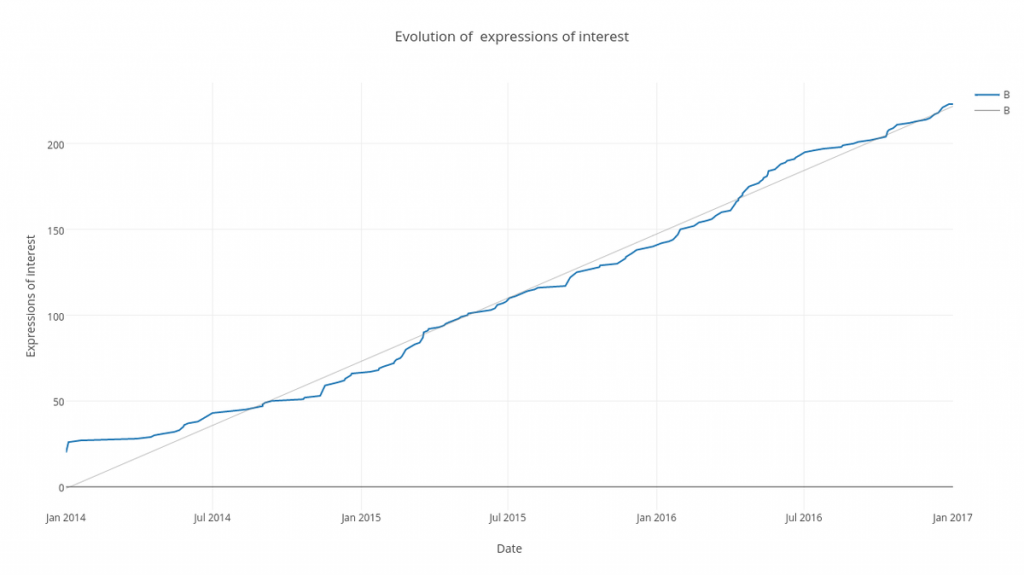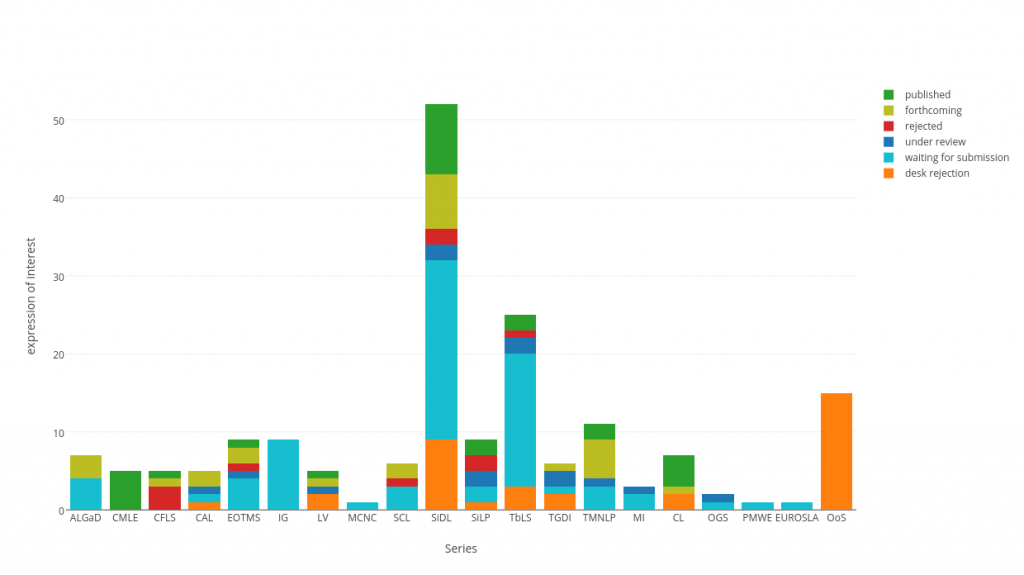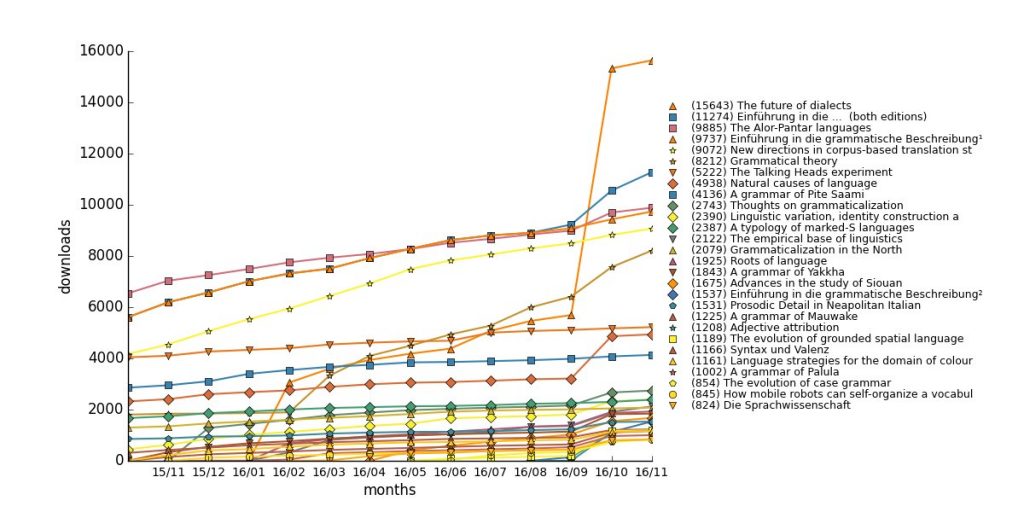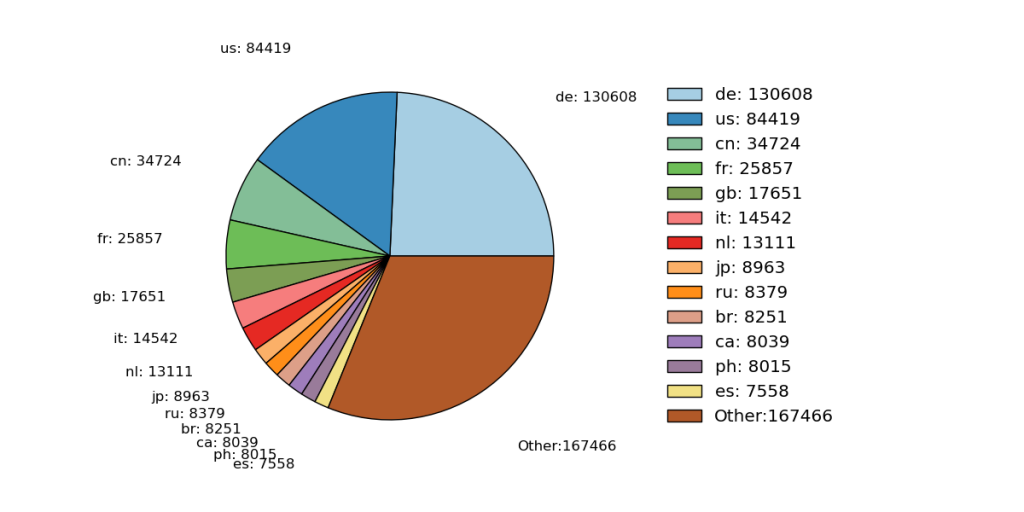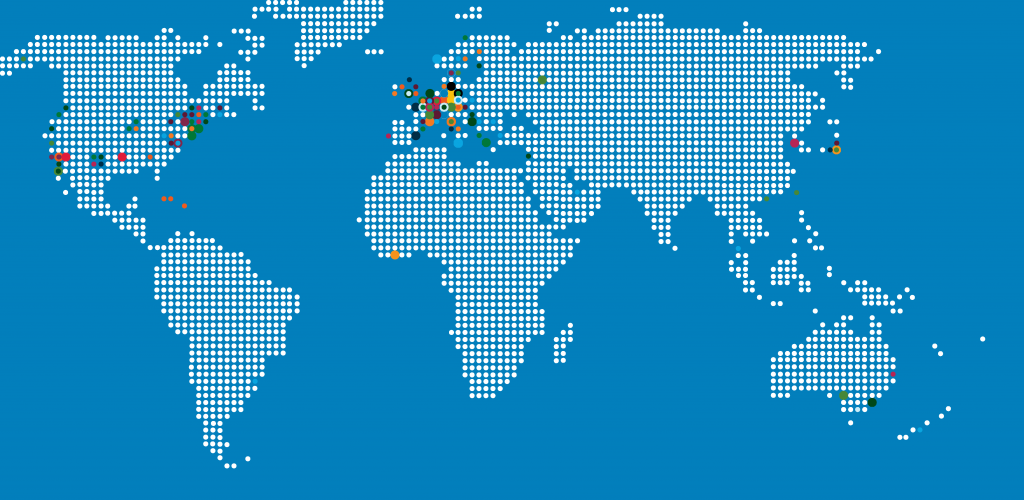We started our annual retrospectives last year. This is the retrospective for 2016
Books and series
Up and until 2015-12-31, 225 works have been proposed to Language Science Press (+86). The curve is very regular and nearly linear.
The following figure gives a breakdown of the distribution of these works and their states of completion.
The most active series are Studies in Diversity Linguistics (52), Textbooks in Language Sciences (25) and Translation and Multilingual Natural Language Processing (11).
There are currently 19 series (+2). Last year, we accepted EuroSLA Studies and Phraseology and Multiword Expressions.
Downloads
Until 2016-12-31, LangSci books have been downloaded 100,908 times (+60,585). This excludes downloads by search engine robots. The most popular work is The future of dialects, downloaded 16,137 times, followed by Einführung in die grammatische Beschreibung des Deutschen with 11,711 downloads and last year’s top dog The Alor-Pantar languages with 10,038 downloads.
The countries where most readers come from are Germany, the US, China, France and the UK. A surprise is #12: the Phillipines.
Community involvement
Language Science Press is a community enterprise. We rely on the community for authoring and reviewing, but also for typesetting and proofreading. Among all published books, 79 linguists from all over the world have participated in proofreading. Many more will be found in the upcoming books. There are currently 205 proofreaders registered with Language Science Press. We give recognition to our proofreaders in our Hall of Fame.
Geographical distribution
For our 19 series, we are happy to be able to rely on 244 (+56) members in editorial boards from 43 (+10) different countries on 6 (+1) continents. Aline Villavicencio from Federal University of Rio Grande do Sul is our first Editorial board member (PMWE) from Latin America.
Knowledge Unlatched
In order to achieve sustainability, we have set up a cooperation with Knowledge Unlatched. Rather than having one big supporter, we want to rely on very many rather small supporters world wide in a kind of grassroots approach. Our current aim is to find 100 libraries and research institutions to support us with 1000 EUR/year plus contributions by individuals. This approach should provide more resilience than relying on one funding body alone.
Paperhive
We have set up a very nice cooperation with Paperhive. We are using their platform for Open Review and Community Proofreading.
Humboldt Universität
Our offices have moved from the Freie Universität Berlin to the Humboldt-Universität Berlin (ca. 12km). The technical infrastructure remains at the Center für Digitale Systeme of the Freie Universität for the time being.
CTAN
The Latex class which we use for our books is available on CTAN and available as part of the standard Latex distributions.

